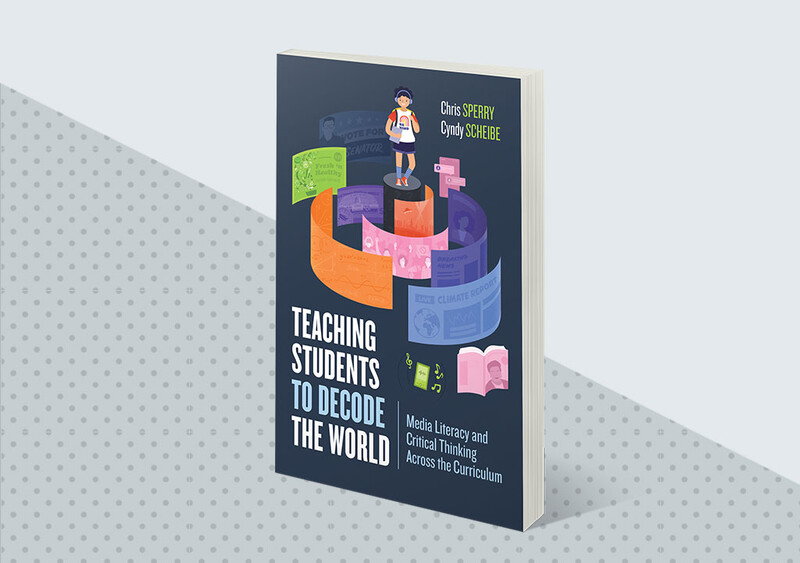Teaching Students to Decode the World: Media Literacy and Critical Thinking Across the Curriculum by Chris Sperry and Cyndy Scheibe (ASCD, 2022)
Among the challenges students currently face is managing what the authors of this book call our "infodemic"—a saturation of media messages that tend to "divide citizens into like-minded echo chambers of belief." This barrage of information also makes it hard for young people to sort out truth from fiction in news, political messaging, and even with friends' posts on social media.
Among the challenges students currently face is managing what the authors of this book call our "infodemic"—a saturation of media messages that tend to "divide citizens into like-minded echo chambers of belief." This barrage of information also makes it hard for young people to sort out truth from fiction in news, political messaging, and even with friends' posts on social media.
With this in mind, Sperry and Scheibe explain how educators can guide students to better understand the tactics of media creators and to think critically about the messages they're flooded with. This includes helping students gain better skills for judging credibility and perceiving subtle biases in any media presentation.
Sperry and Scheibe rely in particular on a technique called constructivist media decoding. The approach involves leading students through question-based analyses of different media materials they might encounter daily—from print and digital documents to movies, ads, and persuasive social media posts. In showing how to guide learners in media-decoding activities, they draw on their own experiences and offer a wealth of examples. They also discuss ways to adapt media-decoding activities to specific curricular content and different grade levels. The text points to a collection of free inquiry-based lessons focused on media literacy in different content areas that the authors, who founded Project Look Sharp, have gathered and made available.
The book emphasizes that students need ongoing practice throughout grades in thinking skeptically about media. In daily life, the authors assert, young people "will need to habitually ask critical questions about authorship, sourcing, credibility, and bias [and] reflect on their own thinking about these messages—and their own preconceived notions. [. . .] To become internalized, these skills and attitudes need to be continually repeated, at all grade levels and in multiple curricular areas."
Teaching Students to Decode the World
Learn to help your students skillfully sort fact from fiction.










